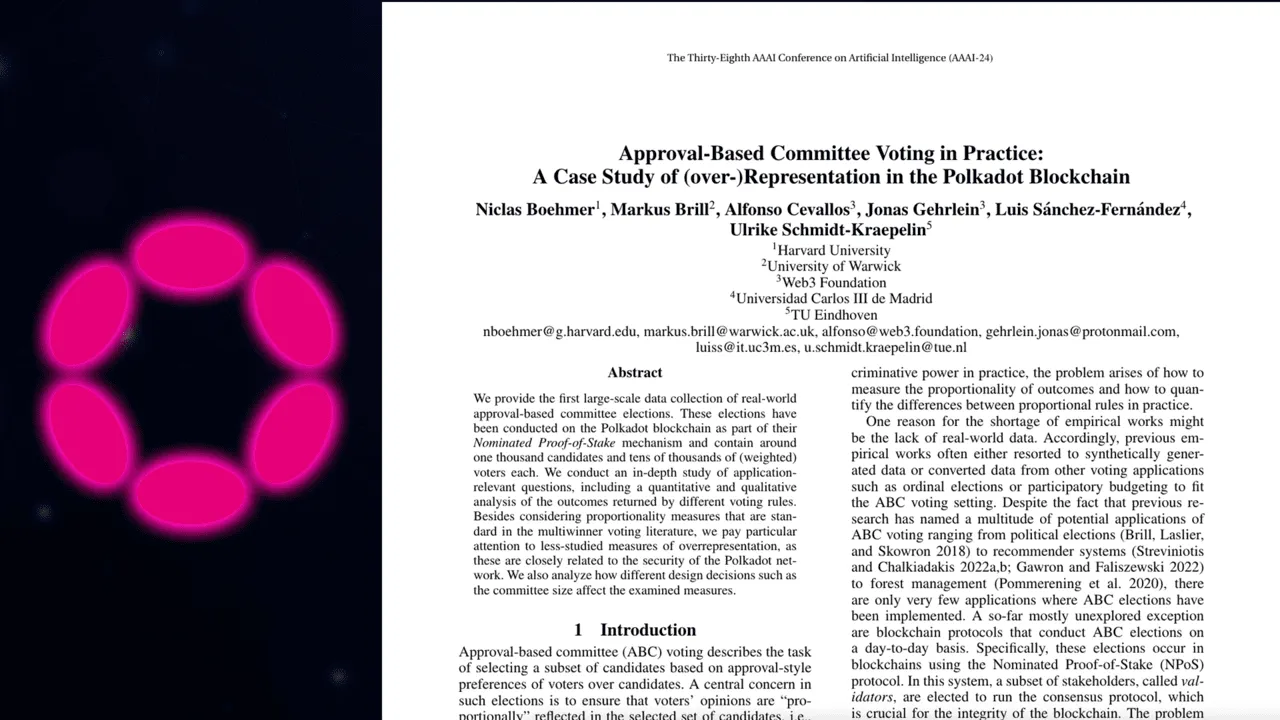Researchers from institutions like Harvard University, the University of Warwick, and the Web3 Foundation delved into the world of blockchain governance through the lens of the Polkadot blockchain. This exploration sheds light on approval-based committee elections, a cornerstone of the Nominated Proof-of-Stake mechanism vital for blockchain security and representation.
The Essence of the Study
The Polkadot blockchain serves as a living laboratory for examining approval-based committee (ABC) voting, where around one thousand candidates vie for approval from tens of thousands of weighted voters. The study not only quantifies the outcomes of different voting rules but also introduces a novel perspective on overrepresentation—a critical factor for the blockchain’s security.
Paper Key Findings
- Real-World Data Collection: This research stands out by compiling 496 real-world ABC elections from the Polkadot blockchain, revealing a detailed landscape of voter and candidate dynamics over time.
- In-Depth Analysis: A meticulous comparison of voting rules highlights the nuances of voter representation and the potential for overrepresentation. Remarkably, the study pioneers quantitative measures for over- and underrepresentation, offering a new toolkit for evaluating voting rules on real-world data.
- Security Implications: The findings have profound implications for blockchain security, particularly in preventing overrepresentation that could compromise the network. The study’s insights advocate for more sophisticated, proportional voting rules, akin to those used by Polkadot.
The research not only advances our understanding of ABC voting but also provides actionable insights for blockchain developers and stakeholders. By evaluating the impact of committee size and the possibility of selecting multiple copies of candidates, the study offers recommendations that could enhance both representation and security in blockchain governance.
The paper “Approval-Based Committee Voting in Practice: A Case Study of (over-)Representation in the Polkadot Blockchain”, authored by Jonas Gehrlein and Alfonso Cevallos of W3F among others, is now available. https://t.co/XBAcmBczOT
— Bill Laboon | Web3 Foundation (@BillLaboon) April 9, 2024
This groundbreaking study bridges theoretical voting mechanisms and practical application within the burgeoning field of blockchain technology. By dissecting the intricacies of approval-based committee voting on the Polkadot network, it illuminates the path toward more secure, representative, and efficient blockchain systems.
Read the paper Approval-Based Committee Voting in Practice: A Case Study of (over-)Representation in the Polkadot Blockchain








